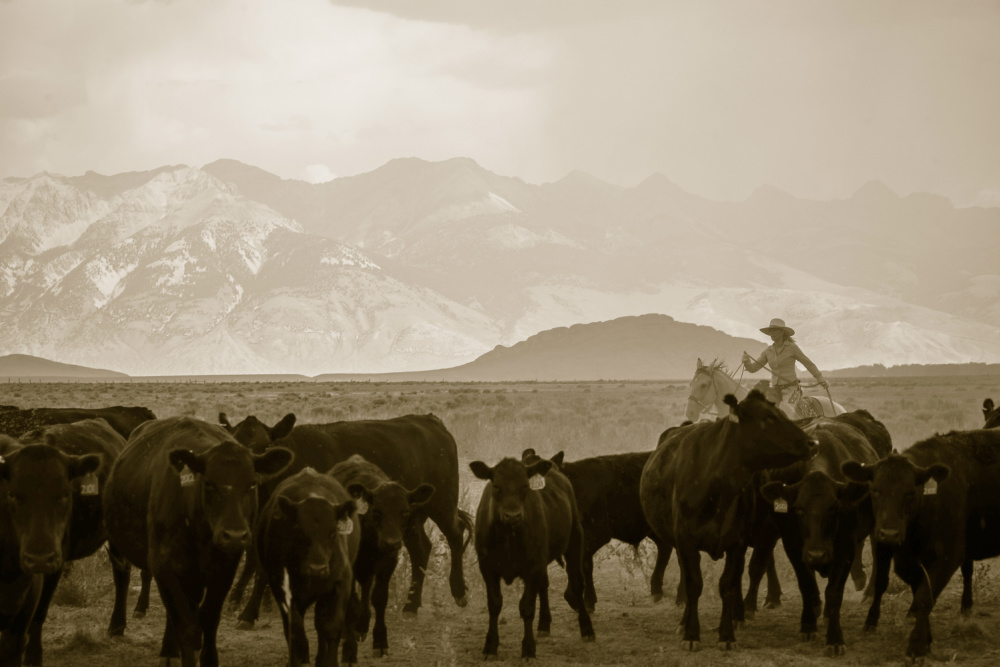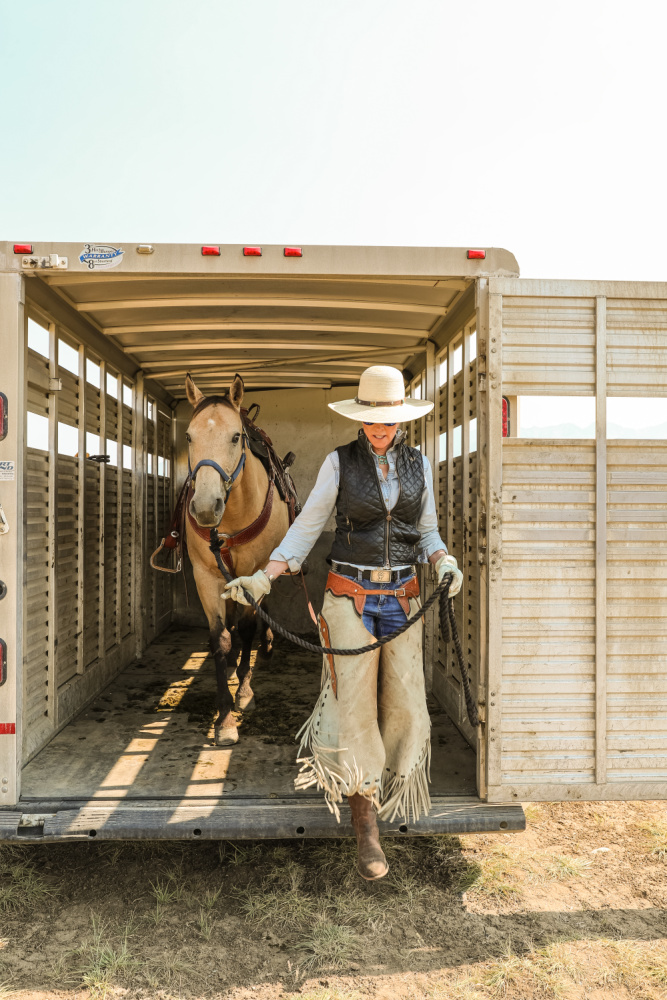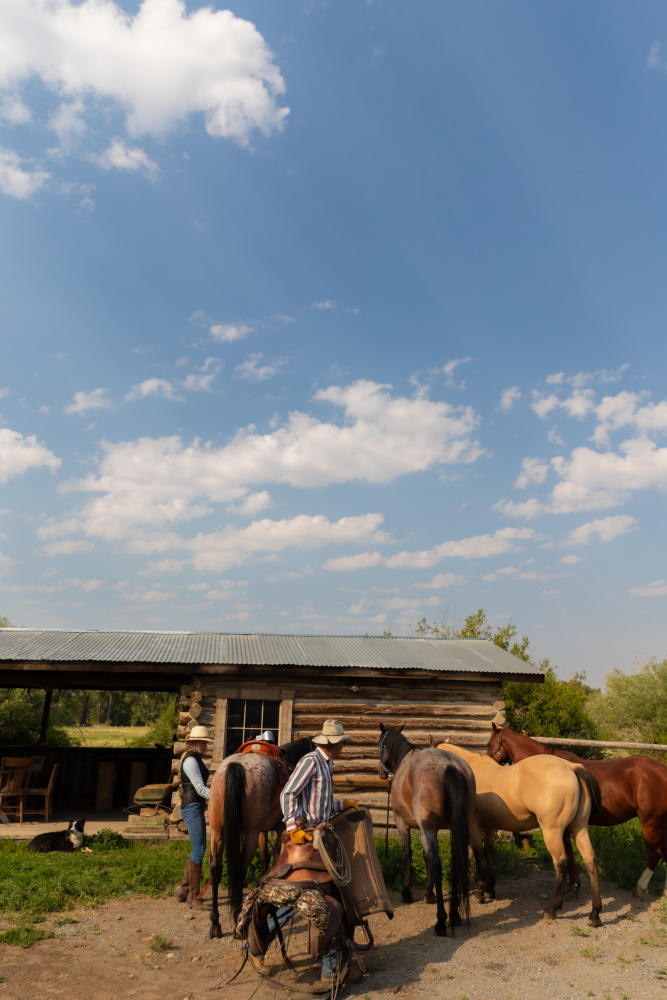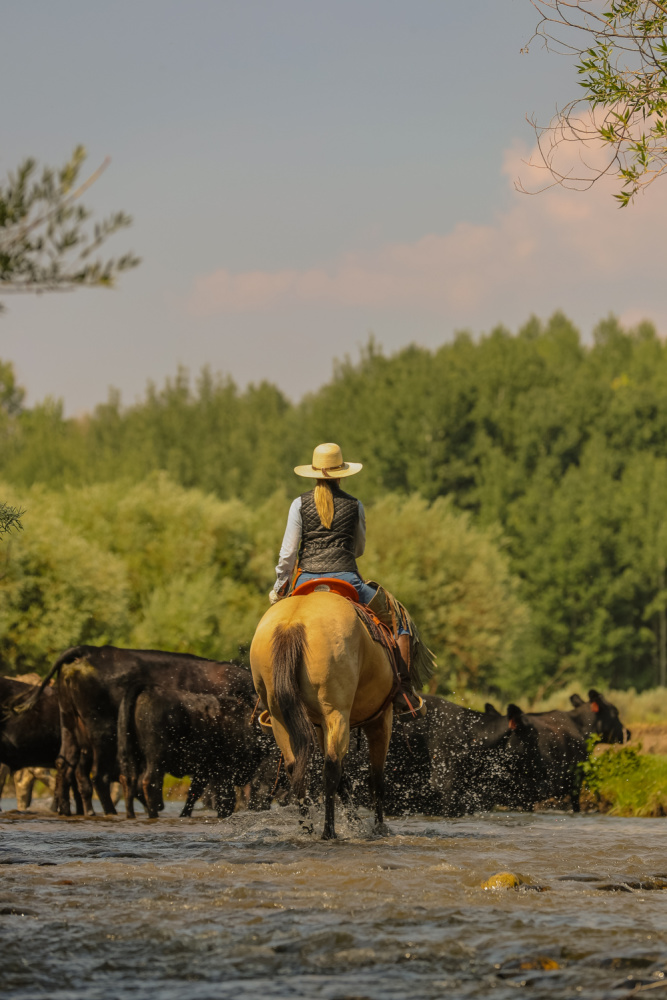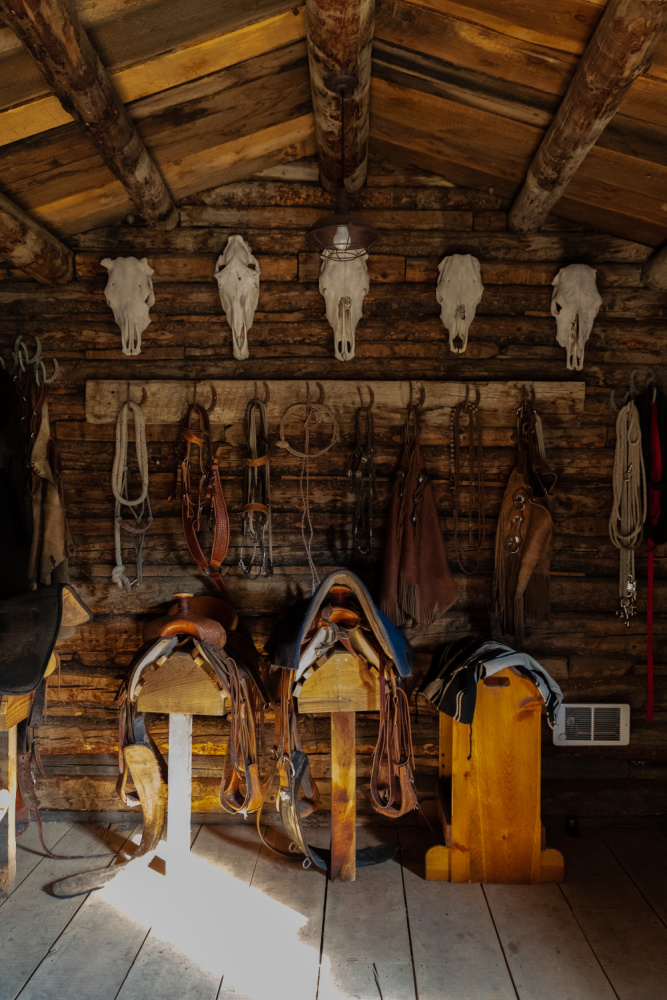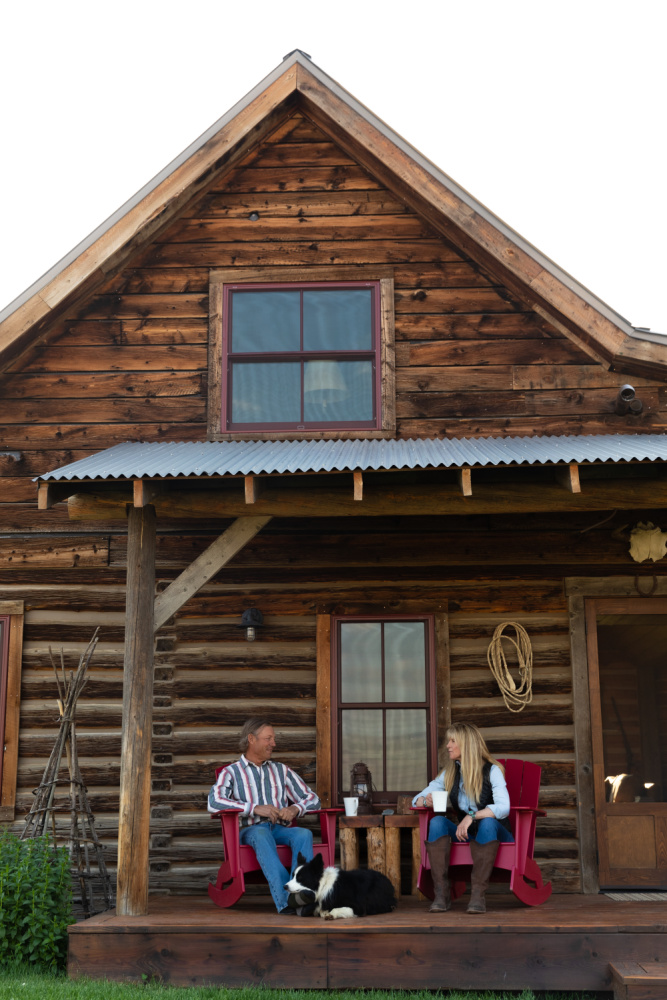When Empty Nesting is Anything but Empty
Jackie and Chris Flanigan raised their boys in the Sun Valley, Idaho, area and their house was always full of good-humored shenanigans, laughs, and endless activity. Now that their sons are grown and living their lives in other parts of the country, Jackie and Chris have put their considerable energies and talents into a new sort of raising. Raising cattle. And raising the bar when it comes to caring for their herd. As much love and care that they put into raising their children, well, there’s that in spades when it comes to their cows. And the result? Big Lost Beef—it’s like small-batch bourbon but for beef connoisseurs.
Talking to Jackie Flanigan about their Big Lost Beef operation is like talking to a proud mama. She is passionate about the well-being of the cattle, and she knows a little something about each cow. “This one, she’s a little mischievous. That one, mellow,” she muses.
I’ve known Jackie for 20 years and I’ve never seen her out of her element, but listening to her talk about life at their near-Mackay, Idaho, ranch, it’s easy to believe that she’s found the right element. “Chris grew up ranching in Colorado where they raised Herefords,” she shares. “About 17 years ago, he started helping out on ranches in the surrounding areas and then I joined him.” Listening to Jackie talk about it, ranching has become their calling.
Jackie and Chris are committed to finding ways to make ranching more sustainable, more environ- mentally sound, and they are also fervent about producing beef that reflects a strong commitment to the health of the cows, the planet, and the people their beef nourishes.
Inspired by Temple Grandin’s work centered on the humane treatment of livestock, the Flanigans have implemented Grandin’s methods and have achieved Global Animal Partnership (G.A.P) certification, a thorough process that requires annual audits and the ethical, humane treatment of livestock.
Essentially, the G.A.P. certification assures consumers that the animals have been raised on a “animal welfare certified farm.” There are six levels of G.A.P. certification, from Certified G.A.P. at the basic level, meaning that the cattle are on pasture except for when they are finishing and that the pastures are maintained with a minimum of 50% vegetative cover. Level 4 certification (Big Lost Beef’s certification level) means that the cattle are on pasture for 75% of life, feedlots are not permitted, the pasture is maintained with at least 50% vegetative cover, weaning is allowed after six months and castration after three months, and transportation of the animals is limited to 16 hours.
Big Lost also has the IMI Global nod with a litany of Where Food Comes From® certifications including CARE (humane care for animals), Non-GMO, Hormone-free, and Grass-fed. In other words, Big Lost cattle are well-cared-for and that is good for them, the planet, and all the beef connoisseurs out there.
Jackie says, “Chris and I understand what a privilege it is to work with the land and animals. We always take the extra step to make sure our cattle are not put under any unnecessary stress, and we strongly believe in pasture-raised meat.”
You can find Big Lost Beef in the Sun Valley area at Nourish Me and through Kraay’s Market. Soon, Atkinsons’ Markets in the Sun Valley area will also be carrying Big Lost ground beef. If you don’t happen to be in the Sun Valley area? You can order the Big Lost Little Box, which has a selection of cuts for those of us who need a fix, but not a whole cow fix.
GET YOUR FIX




